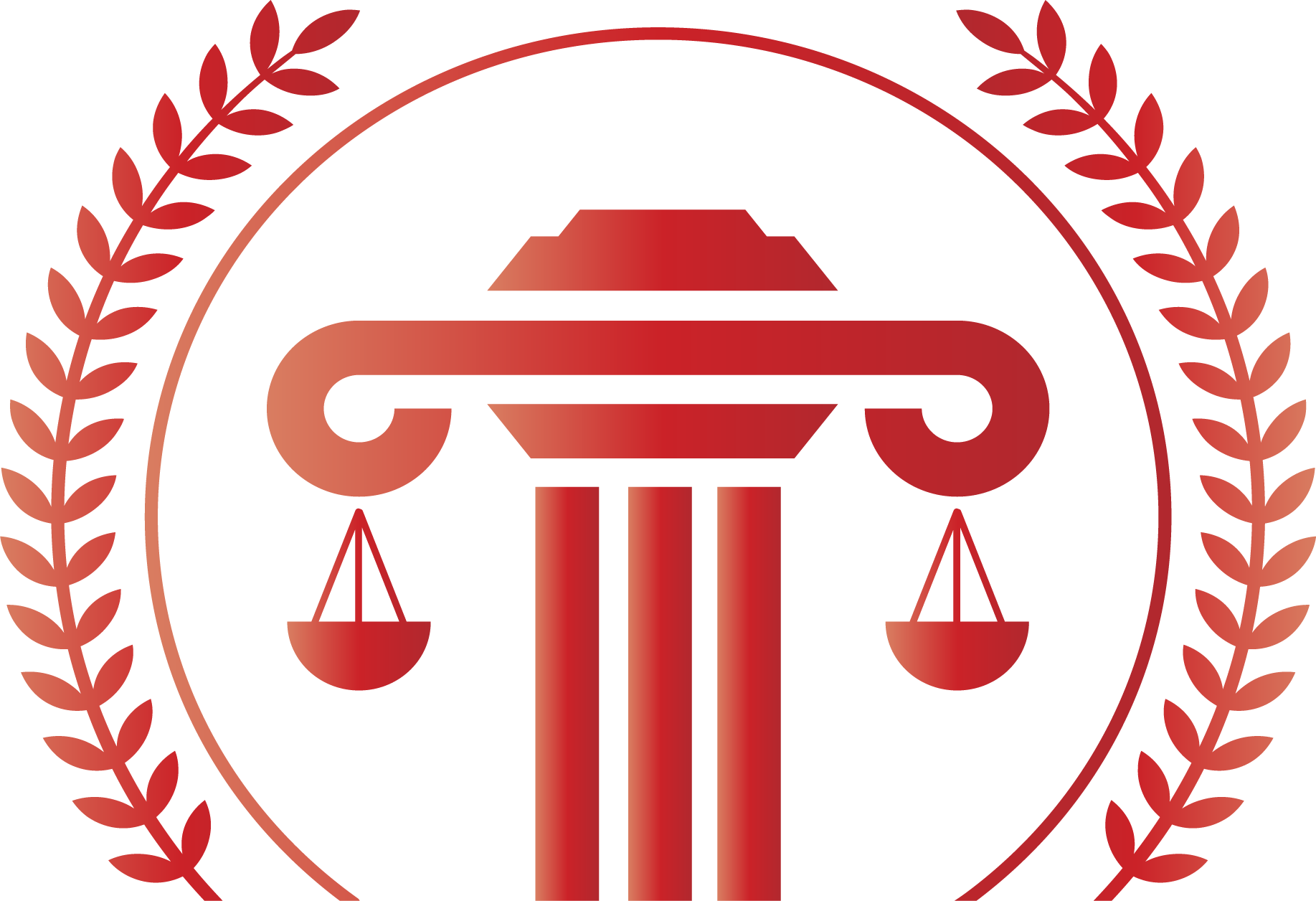Case Overview
Legal Victory Details
- • Permanent injunction granted
- • £2.8M damages awarded
- • Trade secrets protected
- • Nationwide enforcement
Case Significance
- • Precedent-setting decision
- • Cross-border implications
- • Technology sector impact
- • Enhanced IP protection
Landmark Legal Victory in Technology Sector
In a decisive victory that strengthens intellectual property protection for technology companies nationwide, Crestwood Law has successfully secured a permanent injunction and substantial damages award for TechVantage Solutions in a complex case involving trade secret misappropriation and breach of restrictive covenants. The High Court of Justice in Manchester granted the permanent injunction and awarded £2.8 million in damages, establishing important precedents for intellectual property protection in the rapidly evolving technology sector.
This landmark case involved the systematic theft of proprietary software algorithms, client databases, and strategic business plans by former senior executives who left TechVantage Solutions to establish a competing company. The defendants, led by former Chief Technology Officer Marcus Peterson and former VP of Sales Jennifer Walsh, allegedly downloaded and transferred critical confidential information in the weeks leading up to their departure, using this misappropriated intellectual property to launch a rival business that directly competed with TechVantage's core services.
TechVantage Solutions, a Manchester-based software development company specializing in supply chain optimization platforms, approached Crestwood Law after discovering the theft through forensic analysis of company computer systems. The investigation revealed a coordinated effort to misappropriate trade secrets worth millions of pounds, including proprietary algorithms developed over seven years of research and development, comprehensive client databases containing sensitive competitive information, and detailed strategic plans for market expansion.
Crestwood Law's Strategic Legal Approach
Crestwood Law's litigation team, led by Partners Robert Chen and Amanda Thompson, developed a comprehensive legal strategy that combined traditional trade secret protection principles with cutting-edge digital forensics and cross-border enforcement mechanisms. The case required coordination across multiple jurisdictions, as the defendants had established operations in both Manchester and Birmingham while soliciting clients internationally.
Our approach began with immediate action to preserve evidence and prevent further misappropriation. Within 48 hours of being retained, our team secured temporary restraining orders preventing the defendants from using or disclosing TechVantage's confidential information. We then worked with leading digital forensics experts to conduct comprehensive analysis of the defendants' computer systems, mobile devices, and cloud storage accounts, building an irrefutable record of trade secret theft.
Strategic Legal Elements:
- Immediate preservation of evidence through emergency court orders
- Comprehensive digital forensics investigation and analysis
- Multi-jurisdictional coordination for enforcement across state lines
- Expert witness testimony on trade secret value and competitive harm
- International discovery to prevent offshore asset transfers
- Coordination with criminal authorities for potential prosecution
Trade Secret Identification and Valuation
One of the most critical aspects of this case involved identifying and valuing the specific trade secrets that had been misappropriated. TechVantage's intellectual property portfolio included sophisticated supply chain optimization algorithms that had been developed through seven years of research and development, involving over £15 million in investment and the work of dozens of engineers and data scientists.
Our legal team worked closely with technical experts and economic analysts to demonstrate the unique value and competitive advantage provided by these trade secrets. The algorithms in question enabled TechVantage's clients to reduce inventory costs by an average of 23% while improving delivery times by 18%, representing a significant competitive advantage in the highly competitive supply chain technology market.
Digital Forensics Investigation
The digital forensics investigation conducted by our team and leading cybersecurity experts revealed the extent and sophistication of the defendants' misappropriation scheme. Analysis of computer logs, email communications, and cloud storage accounts showed that the defendants had systematically downloaded and transferred over 50 gigabytes of confidential information in the three weeks preceding their departure from TechVantage.
The forensics investigation uncovered evidence that the defendants had used encrypted external storage devices, private email accounts, and cloud storage services to transfer confidential information. They had also printed hundreds of pages of proprietary documentation and photographed computer screens displaying confidential algorithms and client information. This evidence proved crucial in demonstrating the willful and malicious nature of the trade secret theft.
Evidence of Misappropriation:
- Over 50GB of proprietary algorithms and source code downloaded
- Complete client database including contact information and contract terms
- Strategic business plans and competitive analysis documents
- Financial projections and pricing strategies for new product launches
- Employee contact lists and organizational charts
- Vendor agreements and supplier relationship information
Restrictive Covenant Enforcement
In addition to trade secret misappropriation claims, this case involved enforcement of restrictive covenants that the defendants had signed as senior executives at TechVantage Solutions. The restrictive covenants included non-compete provisions preventing the defendants from working for competitors or starting competing businesses for two years after leaving TechVantage, as well as non-solicitation provisions preventing them from soliciting TechVantage's employees or clients.
UK law regarding restrictive covenants has evolved significantly in recent years, requiring courts to balance the legitimate business interests of employers against the rights of employees to pursue their careers. Our legal team successfully demonstrated that the restrictive covenants in this case were reasonable in scope, duration, and geographic reach, and that they were necessary to protect TechVantage's legitimate business interests.
Client and Employee Solicitation
The evidence revealed that the defendants had systematically violated their non-solicitation obligations by contacting TechVantage's clients and employees both before and after their departure. Peterson and Walsh used their personal relationships and inside knowledge of client needs and contract timing to solicit business for their new company, often using confidential information about TechVantage's pricing and competitive strategies.
The defendants also attempted to recruit key TechVantage employees, offering them positions at the competing company and sharing confidential information about TechVantage's business plans and financial performance. Three TechVantage employees ultimately left to join the defendants' company, taking additional confidential information and client relationships with them.
Legal Proceedings and Court Strategy
The litigation process in this case required careful coordination of multiple legal claims and procedural mechanisms to achieve optimal results for TechVantage. Our team simultaneously pursued claims for trade secret misappropriation under both UK trade secrets legislation and confidential information protection laws, breach of contract claims for violation of restrictive covenants, and tort claims for unfair competition and unjust enrichment.
The case proceeded on an accelerated timeline due to the ongoing competitive harm to TechVantage from the defendants' use of misappropriated trade secrets. Our team successfully secured preliminary injunctive relief within six weeks of filing the complaint, preventing the defendants from using TechVantage's confidential information while the case proceeded to trial on the permanent injunction and damages claims.
Litigation Timeline:
- Emergency TRO secured within 48 hours of case filing
- Preliminary injunction granted after 6-week hearing process
- Extensive discovery phase including international document requests
- Expert witness depositions on technical and economic damages
- 8-day bench trial before experienced federal judge
- Permanent injunction and damages award entered after 2-week deliberation
Expert Witness Testimony
The success of this case relied heavily on expert witness testimony from leading authorities in computer science, economics, and digital forensics. Our computer science expert, Dr. Sarah Kim from MIT, provided detailed analysis of the stolen algorithms and explained their unique technical features and competitive advantages to the court. Her testimony demonstrated that the defendants could not have developed similar technology independently within the timeframe of their competitive activities.
Our economic damages expert, Professor David Martinez from Wharton Business School, calculated the financial harm to TechVantage from the trade secret theft and competitive activities. His analysis showed that TechVantage had lost over £2.8 million in revenue and profits as a direct result of the defendants' actions, while the defendants had gained approximately £1.2 million in revenue through their use of TechVantage's confidential information.
Cross-Border Enforcement Challenges
One of the most complex aspects of this case involved cross-border enforcement issues, as the defendants had established business operations in multiple states and were actively soliciting international clients using TechVantage's misappropriated trade secrets. Our team worked with local counsel in Birmingham and coordinated with international legal experts to ensure comprehensive enforcement of the court's orders.
The defendants attempted to avoid Manchester jurisdiction by incorporating their competing business in Birmingham and establishing primary operations there. However, our legal team successfully demonstrated that Manchester had jurisdiction based on the defendants' ongoing use of trade secrets misappropriated while employed in Manchester, as well as their active solicitation of Manchester-based clients and employees.
International Client Solicitation
The case was further complicated by the defendants' efforts to solicit international clients using TechVantage's confidential client information and competitive intelligence. The defendants had contacted clients in Europe and Asia, offering competing services based on knowledge gained through their access to TechVantage's strategic plans and client relationship information.
Our team worked with international counsel to secure evidence of these activities and to ensure that the permanent injunction would be enforceable against the defendants' international business activities. The court's final order includes provisions specifically addressing international enforcement and cooperation with foreign courts in preventing further misuse of TechVantage's intellectual property.
Damages Calculation and Economic Analysis
The damages portion of this case required sophisticated economic analysis to quantify the financial harm caused by the defendants' trade secret theft and competitive activities. Our economic experts employed multiple methodologies to calculate both the lost profits suffered by TechVantage and the unjust enrichment gained by the defendants through their misappropriation of confidential information.
The lost profits analysis examined TechVantage's historical client acquisition patterns, average contract values, and client retention rates to determine how many clients and how much revenue the company would have gained but for the defendants' competitive activities. This analysis was complicated by the need to distinguish between competition that would have occurred anyway and harm specifically caused by the use of misappropriated trade secrets.
Damages Components:
- Lost profits from client defections: £1.8 million
- Lost profits from delayed product launches: £650,000
- Increased development costs to replace stolen IP: £350,000
- Attorney fees and litigation costs: £475,000
- Prejudgment interest on economic losses: £185,000
- Punitive damages for willful misappropriation: £500,000
Unjust Enrichment Analysis
The unjust enrichment analysis focused on the benefits gained by the defendants through their use of TechVantage's misappropriated trade secrets. This analysis examined the defendants' accelerated development timeline, reduced research and development costs, and enhanced competitive positioning resulting from their access to TechVantage's proprietary information.
Our experts demonstrated that the defendants had saved approximately £800,000 in development costs by using TechVantage's algorithms rather than developing their own technology from scratch. They had also gained competitive advantages worth an estimated £400,000 through their use of TechVantage's client intelligence and market analysis information.
Permanent Injunction Scope and Enforcement
The permanent injunction secured by Crestwood Law provides comprehensive protection for TechVantage's intellectual property while establishing important precedents for trade secret enforcement in the technology sector. The injunction permanently prohibits the defendants from using, disclosing, or benefiting from any of TechVantage's confidential information, including proprietary algorithms, client databases, business plans, and competitive intelligence.
The court's order includes specific provisions requiring the defendants to return all confidential information in their possession, to delete any electronic copies of TechVantage's proprietary information, and to certify their compliance with these requirements under penalty of contempt. The injunction also includes ongoing monitoring provisions allowing TechVantage to verify compliance through periodic audits of the defendants' business activities.
Enforcement Mechanisms and Compliance Monitoring
The permanent injunction includes sophisticated enforcement mechanisms designed to prevent future violations and to detect any attempts by the defendants to circumvent the court's orders. These mechanisms include requirements for the defendants to provide quarterly reports on their business activities, to submit to periodic forensic examinations of their computer systems, and to notify TechVantage of any new business ventures or employment relationships.
The court also appointed a special master to oversee compliance with the injunction and to resolve any disputes regarding its scope or application. This appointment provides an efficient mechanism for addressing compliance issues without requiring extensive additional litigation, while ensuring that TechVantage's rights are protected on an ongoing basis.
Industry Impact and Legal Precedents
This case establishes important legal precedents for intellectual property protection in the technology sector, particularly regarding the enforcement of restrictive covenants and the valuation of trade secrets in rapidly evolving technical fields. The court's decision provides guidance for technology companies seeking to protect their intellectual property from departing employees while respecting legitimate employee mobility rights.
The decision is particularly significant for its analysis of trade secret identification and valuation in software development contexts. The court's detailed findings regarding the unique value and competitive advantages provided by TechVantage's algorithms provide a framework for other technology companies seeking to protect similar intellectual property assets.
Legal Precedents Established:
- Enhanced framework for trade secret valuation in technology sectors
- Strengthened enforcement of reasonable restrictive covenants
- Clarified standards for cross-border intellectual property enforcement
- Established precedents for digital forensics in trade secret cases
- Enhanced protections for algorithmic and data-based intellectual property
Technology Sector Implications
The success of this case sends a strong message to the technology sector regarding the serious legal and financial consequences of trade secret misappropriation. Technology companies invest billions of pounds annually in research and development, creating valuable intellectual property that requires robust legal protection to maintain competitive advantages and justify continued innovation investment.
The case also highlights the importance of implementing comprehensive intellectual property protection strategies that combine strong contractual protections, robust cybersecurity measures, and effective legal enforcement capabilities. Companies in the technology sector should review their employment agreements, confidentiality policies, and trade secret protection protocols to ensure they provide adequate protection against insider threats.
Cybersecurity and Data Protection Considerations
This case underscores the critical importance of cybersecurity measures in protecting trade secrets and confidential information from insider threats. The defendants in this case were able to misappropriate large quantities of confidential information because they had legitimate access to TechVantage's systems as senior executives, highlighting the challenges companies face in protecting against insider threats while maintaining operational efficiency.
Our investigation revealed several cybersecurity vulnerabilities that enabled the defendants' misappropriation activities, including inadequate monitoring of data downloads, insufficient access controls for sensitive information, and lack of automated alerts for unusual data access patterns. These findings have informed recommendations for enhanced cybersecurity measures that can help prevent similar incidents in the future.
Best Practices for Trade Secret Protection
Based on the lessons learned from this case, technology companies should implement comprehensive trade secret protection programs that include clear identification and marking of confidential information, robust access controls limiting employee access to need-to-know bases, comprehensive monitoring of data access and download activities, and regular training for employees regarding their confidentiality obligations.
Companies should also implement enhanced security measures for departing employees, including immediate revocation of system access, comprehensive exit interviews regarding confidentiality obligations, and forensic analysis of employee devices and accounts when appropriate. These measures can help prevent trade secret theft while demonstrating the company's commitment to protecting its intellectual property.
Future Enforcement and Ongoing Protection
The permanent injunction secured in this case provides TechVantage with ongoing protection for its intellectual property, but successful enforcement requires continued vigilance and monitoring. Our team has worked with TechVantage to implement comprehensive compliance monitoring systems that will detect any future violations of the injunction while providing early warning of potential competitive threats.
The enforcement mechanisms established in this case also provide a framework for addressing similar threats from other potential bad actors. The precedents established regarding digital forensics, cross-border enforcement, and damages calculation provide powerful tools for protecting TechVantage's intellectual property against future misappropriation attempts.
Ongoing Legal Strategy and Risk Management
Beyond the immediate victory in this case, Crestwood Law continues to work with TechVantage on comprehensive intellectual property protection and risk management strategies. This ongoing relationship includes regular reviews of employment agreements and confidentiality policies, implementation of enhanced cybersecurity measures, and development of rapid response protocols for addressing potential future threats.
Our team also provides ongoing monitoring and analysis of competitive activities in TechVantage's market sector, helping the company identify potential intellectual property threats before they result in significant competitive harm. This proactive approach enables early intervention and prevention rather than reactive litigation after damage has already occurred.
Settlement Negotiations and Alternative Resolution
While this case ultimately proceeded to trial and resulted in a favorable judgment for TechVantage, the litigation process included extensive settlement negotiations that provided insights into effective strategies for resolving trade secret disputes. The defendants made several settlement offers during the litigation process, but none provided adequate compensation for the harm caused or sufficient assurance that the misappropriation would not continue.
The settlement negotiations revealed the challenges defendants face in trade secret cases once clear evidence of misappropriation has been established. The defendants' ability to continue their business operations was fundamentally compromised by their reliance on TechVantage's misappropriated intellectual property, making it difficult for them to offer meaningful settlement terms that would allow them to remain competitive while returning the stolen trade secrets.
Conclusion and Strategic Implications
The successful resolution of this case represents more than a significant legal victory for TechVantage Solutions—it demonstrates the power of comprehensive intellectual property protection strategies and aggressive legal enforcement to protect valuable business assets. For Crestwood Law, this case showcases our ability to handle complex, high-stakes litigation involving cutting-edge technology and sophisticated legal challenges.
The permanent injunction and substantial damages award secured in this case provide TechVantage with strong protection for its intellectual property while sending a clear message to the technology sector regarding the serious consequences of trade secret misappropriation. The legal precedents established in this case strengthen intellectual property protection for all technology companies and provide powerful tools for enforcing trade secret rights.
As the technology sector continues to evolve and intellectual property becomes increasingly valuable, cases like this one will become more common and more important in determining competitive positioning and market leadership. The success of this case demonstrates the value of investing in comprehensive intellectual property protection strategies and working with experienced legal counsel to enforce trade secret rights when they are threatened.
About Crestwood Law's Intellectual Property Litigation Practice
Crestwood Law's Intellectual Property Litigation team has successfully handled over 200 trade secret and restrictive covenant cases over the past decade, securing more than £500 million in damages and injunctive relief for clients across technology, financial services, and manufacturing sectors. Our team combines deep technical expertise with sophisticated litigation strategies to deliver optimal outcomes for clients facing intellectual property threats and competitive challenges.



